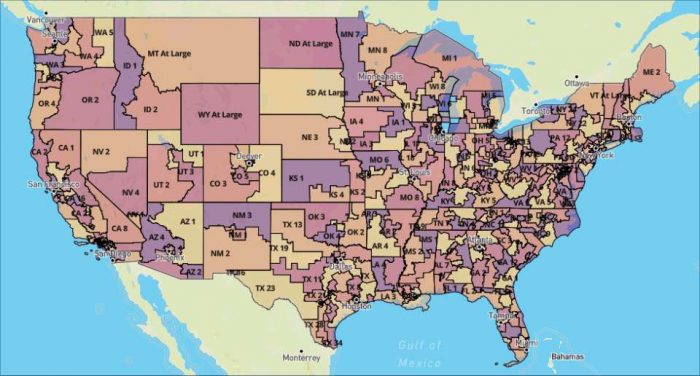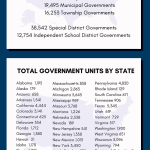A county government is the local governing body that administers a particular geographic area that encompasses a county. It’s responsibilities include law enforcement, public health and safety, and infrastructure. County government serves as an intermediary between local municipal and state governments.
There are just over three thousand counties in the United States, each with its own unique governmental structure. Louisiana and Alaska have equivalent county governments. In Louisiana, it is called a parish and in Alaska, the borough. County governments are typically organized in a hierarchical manner with the county executive at the top. The county executive is responsible for implementing policies formulated by the county legislature, which is made up of elected officials from each district within the county.
How to run a campaign for county office:
What position do you want to run for?
In the United States, counties are governed by either a board of supervisors or a county commission. Its structure is typically governed by general state law, while some have local charters that outline their structure and powers. We’ve compiled a list of the major elected positions in county government and their functions.

There are 3,007 counties in the United States.
County Executive
The county executive is the chief elected officer and head of a county government. The county executive is, in most cases, the highest ranking official in the county. As an executive, they are in charge of running day-to-day operations in their jurisdiction and enforcing the laws passed by the county legislature or board.
A county executive typically holds significant power to make decisions that effect the entire county, but still must answer to voters who can vote them out of office.
County Legislator
A county legislator is a person who represents the people of a district within a county. County legislators are responsible for voting on policies, managing the budget, and overseeing other aspects of local government. They are also responsible for overseeing county law enforcement, setting taxation rates, and approving the county’s budget.
County Sheriff
A county sheriff is the highest law enforcement officer in a county. They are responsible for upholding the law and protecting the people of their jurisdiction. County sheriffs maintains peace and order through patrols, investigations, and other means. In some cases, a sheriff will enforce state laws as well as local ones.
The office may also perform other duties, such as providing protection to judges as they travel between courtrooms and provide security at certain public events.
Every jurisdiction has its own requirements for candidates to become a sheriff. Most jurisdictions require candidates to have at some experience in law enforcement, perhaps as a police officer, or experience in the field of criminal justice.
County Coroner/Medical Examiner
Often another elected position, the county coroner is a medical professional who investigates unexplained deaths to determine their cause. The coroner analyzes the body and other evidence from the scene. They interview witnesses and speak to medical personnel who may have been involved in treating the deceased. Toxicology tests may also be ordered by the coroner’s office to determine whether the deceased had any substances in their system.
A coroner often has some level of law enforcement or legal training so they can testify in court. They may also serve as the county’s medical examiner.
County Clerk
The duties of a County Clerk vary by jurisdiction. The county clerk is also the keeper of the records for a given county. County Clerks are responsible for ensuring that all records related to county business are properly filed, alphabetized, and preserved.
The county clerk’s office may also be in charge of:
- Registering voters
- Issuing marriage licenses
- Recording deeds and mortgages
- Filing liens
- Issuing licenses and permits
They also ensure that all debts owed to the county are collected and that taxes owed by residents are collected.
Depending on state law, county clerks can either be elected or appointed.
District Attorney/Prosecuting Attorney
District Attorneys (or state attorneys) are the chief law enforcement officers in their jurisdiction. They also serve as the prosecuting attorney in county-level or local courts. The District Attorney’s Office is responsible for prosecuting crimes , conducting investigations, offering plea bargains and litigating appeals. They are responsible for sentencing recommendations, seeking evidence, and presenting cases against suspected lawbreakers and defendants.
County Treasurer
The County Treasurer is the person who manages the financial affairs of a county or other local government. This includes collecting, safeguarding, auditing and investing the county’s cash held in trust. A county treasurer ensures that taxes are collected properly and funds are distributed in an equitable manner. The treasurer is also responsible for issuing bank checks to pay county expenses.
County Assessor
A county assessor is responsible for assessing the value of properties in the taxing area. They are responsible for ensuring that real properties are assessed correctly to produce fair and equitable tax rates. In making an assessment of value, an assessor takes into account the property’s size, location, age and quality. Assessors also assist the public, conduct property searches, and they are responsible for maintaining all property records within their jurisdiction.
County Board of Commissioners
A county board of commissioners acts as a governing body for a county. The board sets policy, sets taxes, approves expenditures, and hires staff. Unlike most other forms of local governance, an elected board of commissioners both enact local ordinances and administer them. In other words, the board of commissioners acts as both the executive and legislative body.
If you want to get some firsthand experience without the rigors of an election, consider applying to join a county board or commission.
Here is a general road map to help you navigate the county election process:
Why should you run for county legislature?
County officials have the unique opportunity to address issues that affect residents across multiple towns and cities, such as regional planning, infrastructure development, and public health initiatives.
Are you driven by a specific issue facing your county, such as the need for better public transportation or more effective emergency services? Do you believe that current leadership is lacking, and you have the vision and skills to provide better governance?
Take some time to consider why you’d like to serve. Your goals should be in line with the responsibilities of the role and the needs of your community. A strong vision will act as the foundation of your campaign. A candidate’s goals often influence how they run for office, including such elements as their slogan and logo.
“Action is the foundational key to all success.” – Pablo Picasso
Check your eligibility:
The eligibility requirements for county offices vary depending on the jurisdiction. However, you should be aware of the following typical requirements:
- Typically, you must be a citizen of the United States and satisfy the age and residency criteria imposed by your state or county.
- Certain county positions may require specific credentials or experience. For instance, a county treasurer may demand knowledge of finances, while a sheriff may need experience in law enforcement.
- It is important to meet all filing dates and petition signing requirements. Contact your local election board to get the specifics for your jurisdiction.
“Whether it’s leaders from my own town of Braddock or leaders across the state in Bucks County or Adams County, I’m committed to always working with and listening to local elected leaders.” – John Fetterman
Assess your financial needs:
The cost of running a county political campaign can be substantial. You’ll need money for things like staffing, advertising, and campaign supplies. The size, population, and degree of competition in your county will all affect how much funding you’ll require to finance your campaign.
Take into account all expenses, such as printing, polling, venue charges, office space rentals, and employee pay. The price of advertising on TV, radio, and online should also be considered. Your fundraising efforts and ongoing donor support will play a critical role in financing your campaign.
Create your campaign committee:
A well-organized campaign committee is essential for managing and running a successful campaign. This committee should consist of individuals with diverse skills and roles:
- Appoint a treasurer who will handle campaign finances, ensuring compliance with election finance regulations.
- Open a dedicated campaign bank account to manage campaign funds separately from personal finances.
- Develop a detailed campaign budget with your committee, outlining expected expenses and sources of income.
- Assemble a team that includes a field director, communications director, and campaign manager.
Depending on their experience and skills, each team member should concentrate on a specific area of your campaign. This includes fundraising, communication, and voter outreach.
Ensure your campaign committee and staff are well-versed in local election laws and regulations to maintain legal compliance.
Secure endorsements:
Your campaign’s credibility can be increased by receiving endorsements from important organizations, other elected officials, and community leaders. Reach out to specific individuals and groups who may share your goals. However, keep in mind that there can be conflicts of interest when considering endorsements as they shouldn’t jeopardize your campaign’s principles.
“What generally happens in this county is that our politicians don’t serve us well because they don’t tell the truth, and they don’t keep their promises.” – Peter Garrett
Announce your candidacy:
Once you formally announce your candidacy, it’s time to execute your campaign plan. Through events, online platforms, mailings, and signage, promote your candidacy. During this stage, effective contact with voters and the media is essential because it helps raise campaign awareness and support.
Through an elected county position, you’ll be able to help shape regional policies. Running an organized campaign with a county campaign website can make all the difference.
Best of luck!
FAQs
What are the requirements to run for county office?
It is important to understand all the requirements and qualifications for any position you seek. To run for county office, one must be at least 18 years of age, must be a United States citizen, and must not have been convicted of certain crimes. There may be additional qualifications, depending on the state or specific county election laws.
How much does it cost to run a campaign?
Running for county office is expensive. The cost of running for county office can vary depending on the type of position, the size of the jurisdiction, and the size of the budget. In large counties, like Los Angeles, the average cost can easily top $500 thousand dollars.
How long does it take to run for county office?
Running for county office can take up a large amount of time and expense. It can take up to a year and a half to prepare and run for county office.
Your jurisdiction will determine the rules you need to follow, the time frame you have, and what kind of campaign you are running. You will need to file election paperwork with the appropriate agency.
Conclusion
The are many benefits to holding local and county office. Perhaps the greatest is that you can make a difference by creating programs that help people, by advocating for them, and by solving problems they face.
Sign up below for our campaigning tips. When you are ready to start you digital campaign, look to Online Candidate for a great campaign website and marketing services.
« Reach Early Voters Online: Mail-In and AbsenteeStarting a Local Grassroots Political Campaign »
Tags: county government, local campaigns








